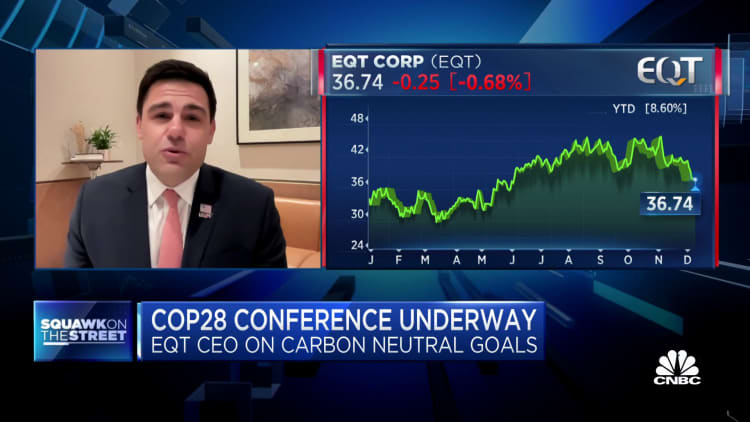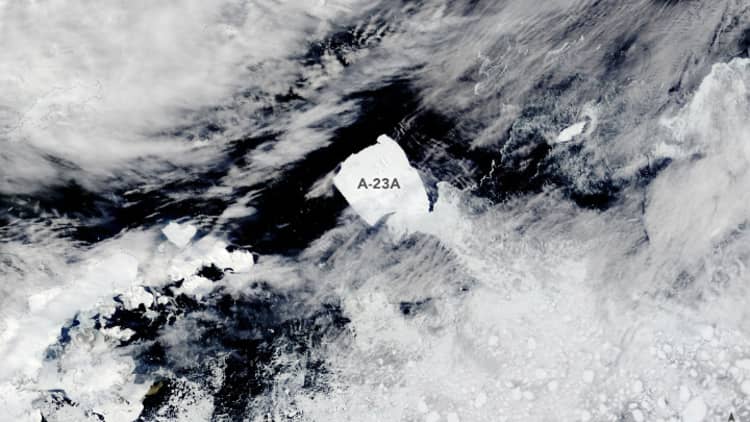Anger and frustration as COP28 draft text omits fossil fuel phaseout

[ad_1]
COP28 President Sultan al-Jaber speaks to the media at the U.N. climate conference on Dec. 10, 2023 in Dubai, United Arab Emirates.
Sean Gallup | Getty Images News | Getty Images
DUBAI, United Arab Emirates — The draft text for a COP28 climate deal that does not include the phasing out of fossil fuels has drawn widespread criticism from major players, highlighting enduring rifts on the international summit’s final day.
The document, published by the United Arab Emirates’ presidency of the climate summit, stressed the need to reduce emissions, but did not call for the doing away of fossil fuels altogether. Scientists say fossil fuels are the single biggest factor contributing to potentially life-threatening climate change.
Delegates from the U.S., European Union and climate-vulnerable countries like many in Africa and the Pacific Islands issued urgent warnings over the draft deal, putting them at odds with many oil-producing countries.
Wopke Hoekstra, the EU’s chief COP28 negotiator, told press that the draft was “clearly insufficient and not adequate to addressing the problem we are here to address.”
“That is not because we want it, the minister or I want it, or the Europeans want it,” Hoekstra said. “Because scientists are crystal clear about what is needed and on the top of that list is phasing out fossil fuel because there is a direct [correlation] between doing that and making sure we get the earth, we get people out of harm’s way.”
U.S. Special Climate Envoy John Kerry expressed similar concerns, saying: “We’re not where we’re meant to be in terms of the text … Many of us have called for the world to largely phase out fossil fuels, and that starts with a critical reduction this decade.”
“This is a war for survival,” he added.

The burning of coal, oil and gas accounts for more than three-quarters of global greenhouse gas emissions. It is for this reason that so many had pushed for the COP28 outcome to show that “we are truly at the beginning of the end of the fossil fuel era.”
However, COP28 President Sultan al Jaber faced a backlash last week when he claimed there was “no science” behind calls for a phase-out of fossil fuels, and that such a move would not allow sustainable development “unless you want to take the world back into caves.”
Following the subsequent outcry, Jaber — who is also the chief executive of the Abu Dhabi National Oil Company (ADNOC) — said his team “very much believe and respect the science.”
A spokesperson for COP28 told CNBC at the time that al-Jaber has been “unwavering” in saying that keeping global warming to 1.5 degrees Celsius involves action across a number of areas and sectors.
‘The context on fossil fuels misleads the world’
Speaking after the publication of the draft text on Monday, Teresa Ribera, Spain’s minister for ecological transition, told reporters: “We think that there are elements in the text that are fully unacceptable,” adding that: “it is not clear at all, how it can proceed in this critical decade in the energy field.”
“We think that it could be good to have clarity if we really want to make out of this COP what the world needs, and to make out of this COP what it was supposed to be: a turning point in our climate fight,” she added.

Germany Foreign Minister Annalena Baerbock, meanwhile, described the text as misleading. “The need for urgency to replace and reduce fossil fuels in the power sector in this critical decade is completely missing. The language on coal contradicts EU energy policies and it allows for new coal power plants,” she said.
“Most of all, the context on fossil fuels misleads the world. It suggests that fossils can continue to play an essential role in our future. This sends a misleading signal to our businesses, to our markets.”
The draft document outlined several options for countries to cut emissions, including “reducing both consumption and production of fossil fuels, in a just, orderly and equitable manner so as to achieve net zero by, before, or around 2050.”
COP28 head Jaber said Monday that the nearly 200 countries involved in the talks “still have a lot to do.”
“We need to make progress in many areas, including fossil fuel language,” he said, and urged “even more flexibility” from the involved parties.
The UAE is a member of the powerful oil producer group OPEC and sits among the world’s top ten oil producers.
— CNBC’s Sam Meredith contributed to this report.
[ad_2]